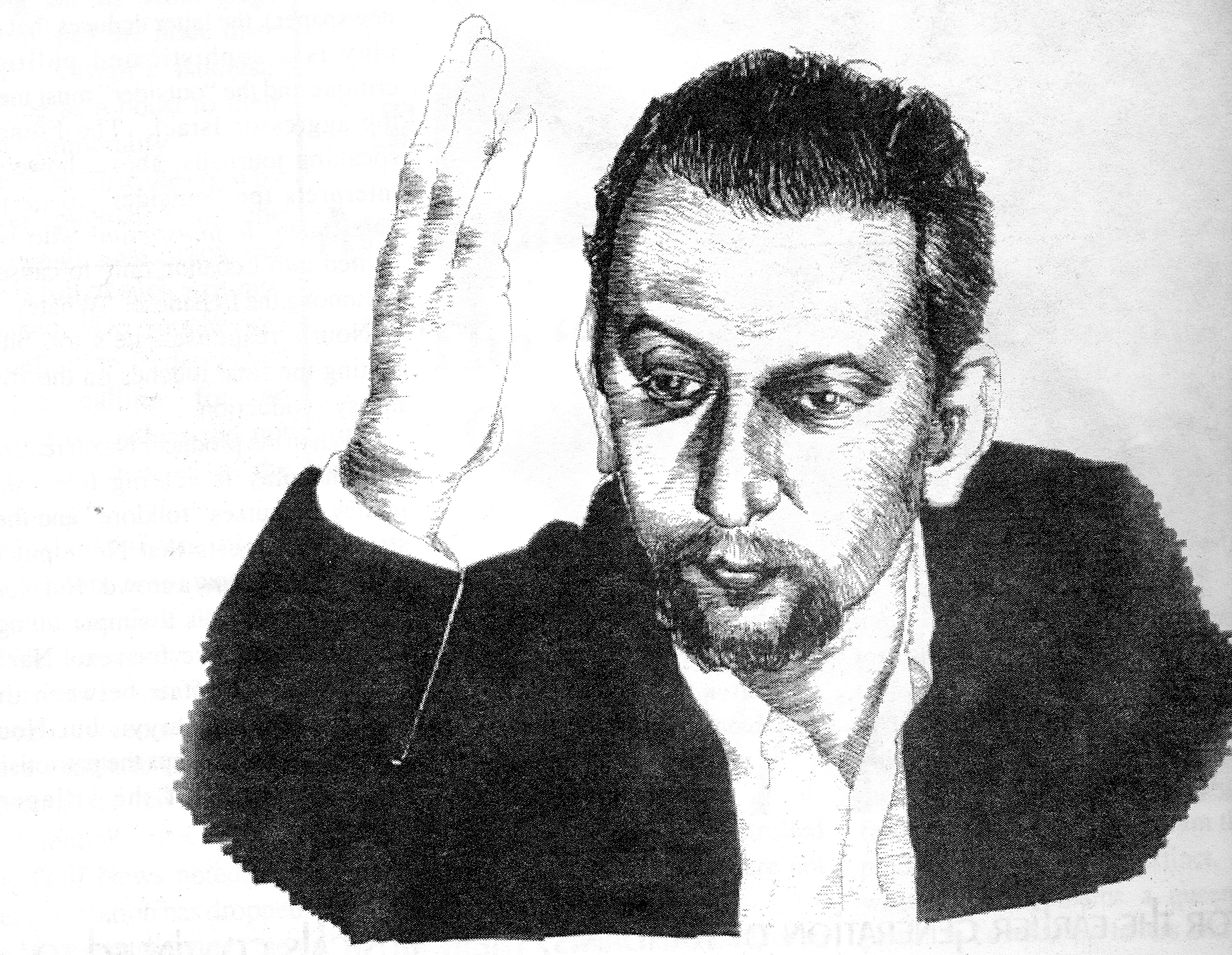How Ziad Rahbani Challenged Religious and Political Orthodoxy with Wit, Sorrow, and Song
Ziad Rahbani by John Sayre for Al Jadid.
On 26 July 2025, the Lebanese composer, pianist, playwright, and polemicist Ziad Rahbani passed away from cirrhosis of the liver in Beirut at the age of 69. Since he started composing as a teenager, the son of the legendary Fairuz (now 90 years old) and the late Assi Rahbani of the celebrated Rahbani Brothers, the musical prodigies who defined the shape of the modern Lebanese short song, Ziad leaves us a multi-decade-long legacy that reshaped Arab music and Lebanese politics. The genius and enigmatic Ziad will be remembered by his countless fans worldwide, but likely happily forgotten by the authorities he challenged and ridiculed.
His grand entrance into composing was in 1973 when his uncle Mansour drafted the theme for the song “Sa’aluni-n Nass” (People Asked Me) for Fairuz to honor Assi’s absence during his extensive hospitalization. Ziad had composed a melody with different lyrics intended for singer Marwan Mahfouz. Still, his uncle found the melody was a fit for his lyrics to “Sa’aluni-n Nass” and finished them to fit Ziad’s melody. It was the first time Fairuz sang a composition by her son, and it was an immediate hit; to this day, this melody is part of the repertoire of every Arab music conservatory.
While this song did not deviate from the Rahbani style — Ziad declared Sayyid Darwish inspired it — he later wrote and composed numerous pointedly distinctive songs that moved Fairuz’s career into a different direction after decades of being the voice of the brothers. Musically, Ziad sometimes broke with the traditional style by beautifully introducing elements of jazz and at other times trended very “Eastern” by featuring traditional microtonal maqamat and the buzuq, a favored folk instrument of his father and uncle in homage to Rahbanism. When it came to the lyrics and texts of his musicals, however, he deviated from the style of not only his family but also the entire Arab literature. He had something to say and arguments to present, and nobody was going to dare censor him. He further amplified his social and political views in editorial newspaper articles and numerous interviews, where he was given the space and time to elaborate on his points, focusing on the central themes of fighting injustice and a dysfunctional political structure.
Ziad’s prolific writing peaked during the 15-year Lebanese civil war and grew into a political philosophy that attracted followers worldwide who, frustrated with senseless bloodshed, needed a courageous voice to represent them. He criticized the failed partisan system built on meticulously dividing authority between religious sects, warlords, and foreign influencers.
Satirically keen on social awareness, his rejection of religious participation in power and partiality towards secular and socialist ideas led some to accuse him of being an atheist (or kafer), a label that can put a person’s life in jeopardy. Ziad responded through the song “Ana Mush Kafer” (I Am Not a Nonbeliever), a lamentation of Lebanon’s corruption, with the now-famous lines: “I am not kafer but poverty is kafer and hunger is kafer,” singing of how he simply happened to collect all these kafer elements.
Ziad took tremendous liberties in his plays, which were broadcast on the radio, not generally allowed in the Arab World. The 1974 comedy, “Nazl el-Surour” (Happiness Motel), was so highly critical of political abuse and class struggle that some considered it a prophecy of the war that broke out only a few months later. He followed that with “Bin-Nisbeh La Bukra Shou” (What About Tomorrow) and “Film Amereki Tawil” (A Long American Film), set inside an asylum, that cemented his reputation as the leftist satirist frequently following in the footsteps of Egypt’s Sayyid Darwish and poet Ahmad Fouad Najm, who spoke for the dispossessed.
As a man of the people who was not egotistical, power-hungry, or thirsty for recognition, Ziad intentionally added artistic silliness to his albums. In “Bilafrah” and “Ana Mush Kafer,” featuring primarily vocalist Joseph Saqr, he talks, jokes, and giggles in the song tracks, giving the impression that the album was a recorded rehearsal or draft work in progress captured in someone’s living room. This was the complete opposite of the statuesque composure Fairuz is known for and the dignified perfectionism the Rahbani Brothers enforced. This was their son’s way of philosophically (not artistically) rebelling against them as they represented the image of a Lebanon he could not fit in. On a personal level, however, he remained a loving son close to his family and admired their art. Ziad especially praised in interviews his mother’s talent and her ability to express the lyrics and melodies written for her to perform in her unique manner.
A master of self-deprecation in all his interviews and stage roles, Ziad’s sense of humor poured out in his lyrics. Take the song “Marba al-Dalal,” which he said was a real story of him proposing to Dalal and getting rejected by her father because he did not fit the family’s social status. The same theme of his romantic and social “failure” was repeated in “Aayshi Wahda Balak” (She is Living Well Without You), another tragic comedy.
Ziad’s fierce integrity, independence, and refusal to compromise were clear; he often worked in bars and nightclubs as a musician to earn his living and lived his entire life in rented apartments. He never sought to profit from his art or favor from the political powers in the region. His funeral was attended by some of the corrupt political and artistic figures he despised. The “living conscience of the people” died as he lived, in poverty and frustration with the incompetence of a medical system that failed to save him (where the cost of an operation played a factor), his final act a call for reform.
This article appeared in Inside Al Jadid Reports, No. 129, 2025.
Copyright © 2025 AL JADID MAGAZINE

